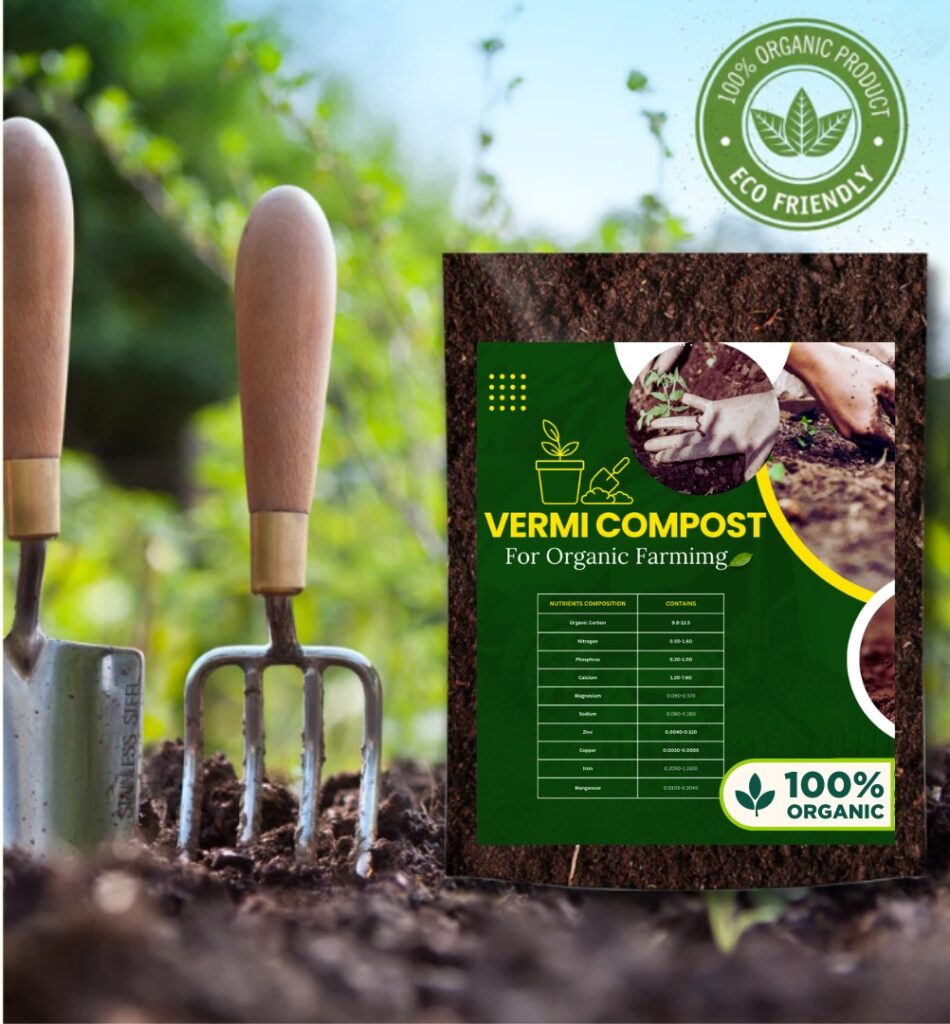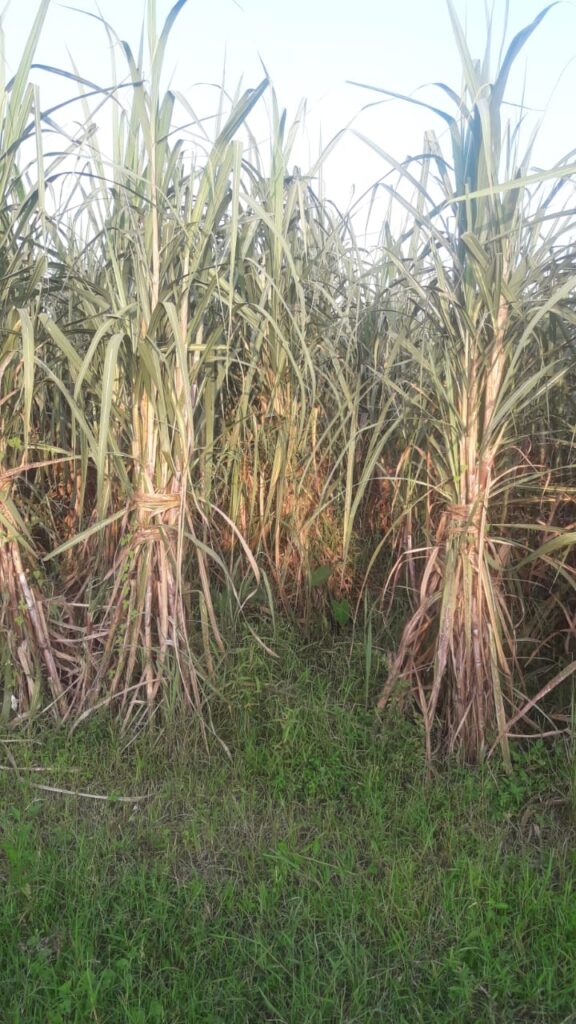Introduction
Due to its multiple advantages for sustainable agriculture, vermicompost is a natural, organic fertilizer that has experienced substantial growth in popularity in recent years. The goal of this article is to give readers a thorough grasp of vermicompost, including its definition, distinctions from conventional compost, , price range, and significance for improving soil health and crop yield.
What is Vermicompost?
Vermicompost is the end product of the vermicomposting process, which uses earthworms to break down organic waste products such food scraps, agricultural waste, and animal manure. The organic material is consumed by earthworms, who then break it down into vermicompost, a rich, nutrient-dense compost.
Vermicompost Meaning and Definition
Worm castings or worm humus are other names for vermicompost, which is the black, crumbly product of earthworms’ decomposition of organic waste. It is a type of compost that is very rich in humus, helpful bacteria, and important plant nutrients, making it a great soil conditioner.
Difference Between Compost and Vermicompost
- Vermicompost and compost are both methods of decomposing organic matter, although they have different production methods and nutritional compositions. The main differences between the two are as follows:Production Method: Microorganisms like bacteria and fungi decompose organic material aerobically in the presence of oxygen to produce compost. Vermicompost, on the other hand, is made by earthworms that eat and digest organic waste.
Vermicompost typically has higher concentrations of vital nutrients like nitrogen, phosphate, and potassium than regular compost does. Vermicompost also contains increased levels of both plant growth hormones and beneficial bacteria, which support healthy plant growth.
Vermicompost has a greater capacity to hold water, ensuring that plants have access to sufficient hydration even during dry spells. This
Vermicompost Pricing Information
Vermicompost costs can change depending on a number of variables, including location, quality, and quantity. Vermicompost is typically sold by weight, typically in kilograms. Although costs may vary depending on the market and a certain source, vermicompost typically costs between $1 and $2 per kilogram.
Vermicompost Meaning in Hindi
Vermicompost is referred to as “Keetkosh” in Hindi. The name “” is a combination of the terms “Keet,” which means “worm,” and “Kosh,” which means “organic matter or waste.” They collectively reflect the method of using worms to transform organic waste into useful compost.
The Importance of Vermicompost in Sustainable Farming
Enhanced Soil Fertility: Vermicompost improves soil fertility by supplying a balanced mix of vital nutrients and trace elements required for strong plant development. It boosts nutrient retention capacity, microbial activity, and soil structure
- Vermicompost is an environmentally benign substitute for synthetic fertilizers, hence lowering the demand for chemical inputs in sustainable soil amendment. Long-term sustainability is achieved through minimizing nutrient loss, reducing soil erosion, and maintaining the pH balance of the soil.
- Disease Suppression: The beneficial microorganisms in vermicompost help control dangerous pests and diseases that are spread through the soil. They provide a natural equilibrium in the ecosystem of the soil, decreasing the need for chemical pesticides.
- Vermicompost’s organic matter and plant growth hormones encourage root development, which improves nutrient uptake and raises crop yield. Improved Plant Growth and Yield. Additionally, it improves seed germination and fortifies plants’ defenses against environmental stresses.
Frequently Asked Questions (FAQs)
1.What volume of vermicompost ought to be applied to plants?
The appropriate vermicompost application rate varies based on the type of plant and the soil characteristics. As a general rule, you can spread a thin layer (1-2 inches) of vermicompost around the base of plants or, for container plants, combine it in a 1:4 ratio with potting soil.
2.Is vermicompost suitable for use in indoor gardening?
Vermicompost can be utilized for indoor gardening, so the answer is yes. It is a superior organic fertilizer for indoor plants, supplying vital nutrients and enhancing soil quality. To avoid overfertilization, use vermicompost sparingly and water your indoor plants appropriately.
3.How long does vermicompost take to complete?
Ans: The length of the vermicomposting process varies from 2 to 6 months depending on the type of organic waste, temperature, and moisture content. Vermicompost is regarded as ripe and prepared for use when it is black, crumbly, and free of discernible food bits.
Conclusion
Vermicompost is an eco-friendly and long-lasting way to increase crop output, improve soil fertility, and lessen the need for chemical inputs in farming. Vermicompost has grown to be a valuable resource for both farmers and gardeners due to its high nutritional content and soil-conditioning abilities. We can develop a more resilient and sustainable agricultural system while conserving the quality of our environment for coming generations by adopting vermicomposting practices.



